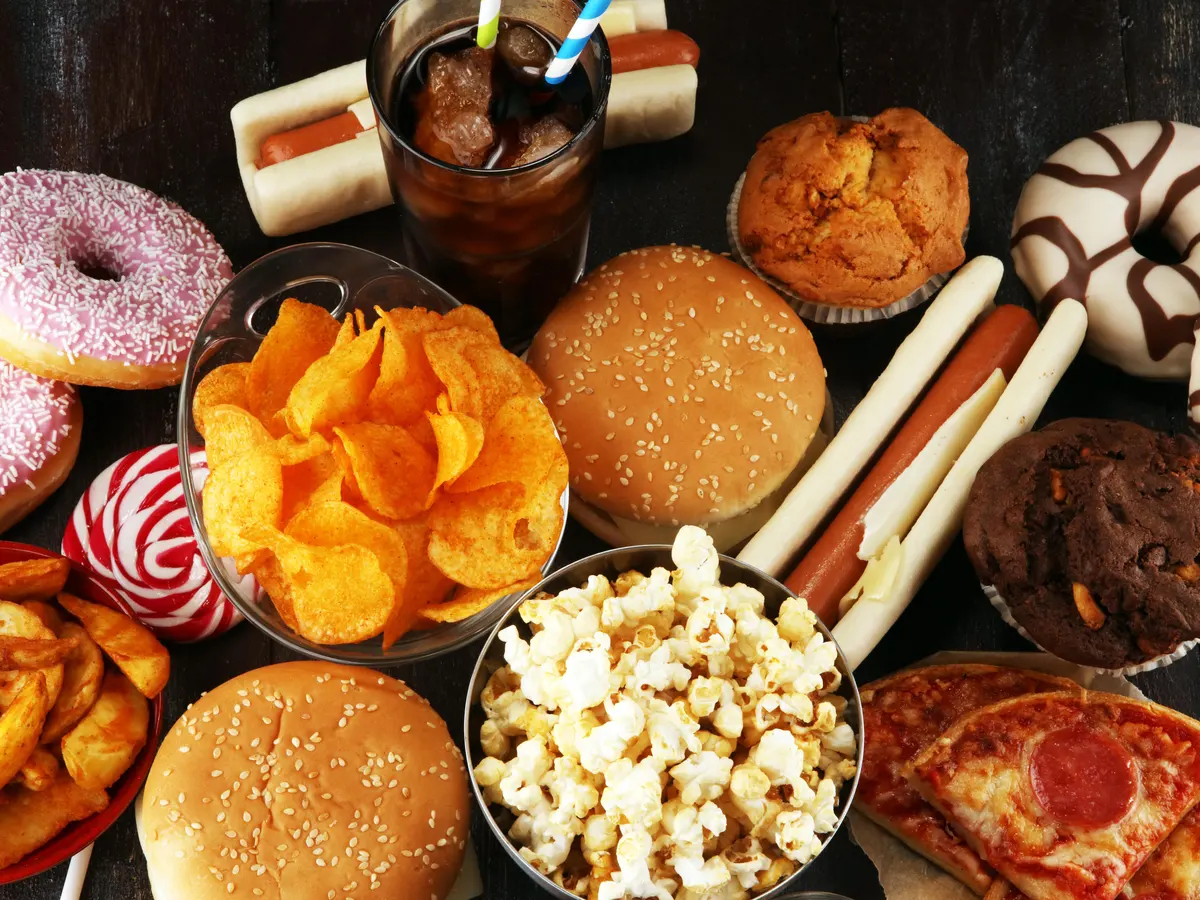As I report more, I’ve stopped thinking of UPFs as food at all – and I suspect corporations don’t care how their products affect consumers
- Ultra-processed foods are ultra bad for you. Here’s what to know
I’ve been standing in the dairy aisle at my local grocery store, poring over the nutrition labels on the backs of different soy, almond and oat milk containers, for 15 minutes when I decide: maybe not this week. I’ve spent the past four months reporting on ultra-processed foods and wanted to see whether it’d be possible to go even a week without them.
The problem is, I can’t find any dairy-free milks that fit the bill. The soy creamer that I’ve fixed my morning cups of tea with for nearly a decade is chock-full of ingredients I now recognize as markers of an ultra-processed product: maltodextrin, soy lecithin and locust bean gum. There are alternatives with fewer ingredients, but I’m not sure any of them fits the rules I’m trying to abide by. So I sheepishly pop my trusty soy creamer in my basket and kick the can down the road another week.
It’s three (OK, six) weeks later when I finally commit to the ultra-processed food-free week. For seven days, I will forgo industrially formulated products that are high in fats, starches, sugars and additives (like flavorings, colorings and preservatives) – which means no chips or chocolates, but also no packaged bread, yogurt with added fruit or granola bars.
Wandering the aisles, I select ingredients for a fish, couscous and vegetable stew; a quiche; and sandwiches (I’m fortunate to only be cooking for one). Crushed tomatoes are fine, but a prepared tomato spread is not; pie crust is OK if I make it from scratch, but not if I buy it pre-made. Then I stock up on snacks: apples and cheddar cheese, hummus and pita chips (many brands don’t pass muster), snap peas and mangoes.
I want a few treats so this week feels like fun, and not punishment, and while the fresh fruit is a huge treat in my book, I step into the ice cream aisle as well. Unsurprisingly, most of the brands I’d normally pick up are ultra-processed: filled with emulsifiers, thickening agents and flavorings. There’s a growing selection that aren’t – though they’re a not-insignificant $2 to $3 more per pint. That’s my first takeaway: purchasing whole ingredients and less-processed foods isn’t cheap – and with soaring food prices, it’s near impossible for many families.





